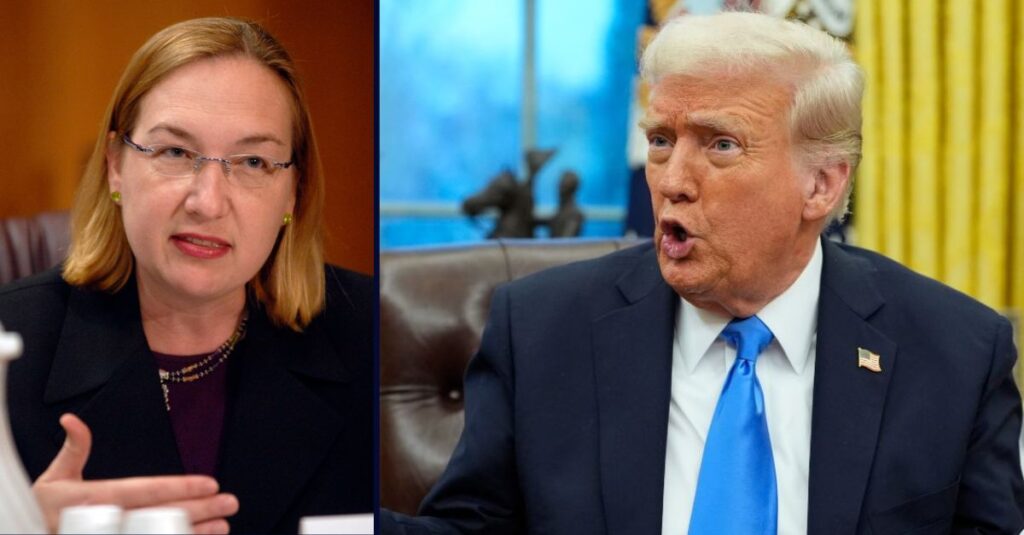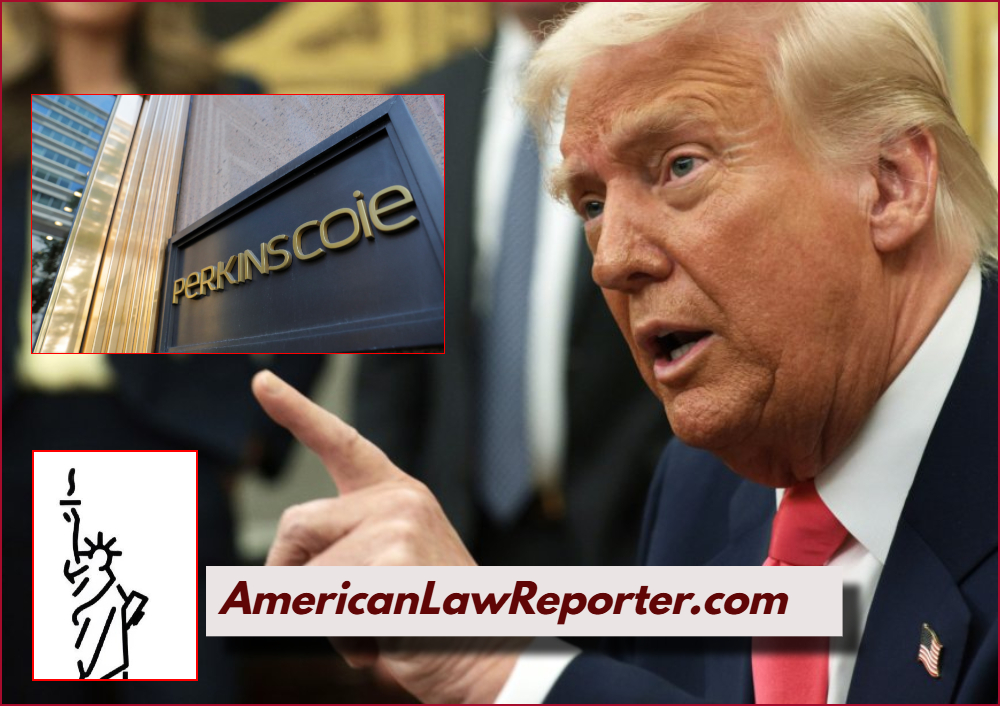A federal judge sharply criticized the Trump administration’s Justice Department on Wednesday during a high-profile court hearing, calling its rationale for targeting the prominent law firm Perkins Coie “a temper tantrum” and “worthy of a 3-year-old.”
The lawsuit stems from a controversial March 6 executive order signed by former President Donald Trump that accused Perkins Coie of “undermining democratic elections” and engaging in racially discriminatory hiring practices.
The order, which suspended the firm’s security clearances, terminated government contracts, and banned its employees from accessing federal buildings, was met with swift legal action from Perkins Coie, who filed a 43-page complaint alleging the order was unconstitutional and retaliatory.
U.S. District Judge Beryl Howell, who had temporarily blocked the executive order in March, confronted Justice Department officials in a tense hearing, questioning whether the administration’s actions were fueled more by political animus than legitimate national security concerns.
“I’ll be honest, it struck me as a temper tantrum from the Department of Justice and OMB,” Howell said of a follow-up memo that downplayed her earlier ruling. “Worthy of a 3-year-old — not at the Department of Justice and OMB.”
DOJ Deputy Associate Attorney General Richard Lawson defended the administration’s position, citing “significant” concerns tied to national security, though he stopped short of stating that the intent was to pressure the firm or force financial concessions.
But Howell and attorneys for Perkins Coie weren’t convinced.
“It sounds more like national insecurity, than national security,” said Dane Butswinkas, representing Perkins Coie.
Judge Howell repeatedly pressed DOJ lawyers about whether targeting the law firm as a whole—before investigating specific individuals—was legally justified. She likened the action to the Red Scare and McCarthyism, warning of the dangers of punishing perceived political adversaries without due process.
“This is exactly that,” Butswinkas agreed. “Worse than that, because it’s even more punitive.”

Perkins Coie, which has represented high-profile Democratic clients including Hillary Clinton, contends that the Trump administration’s executive order was politically motivated and intended to chill legal advocacy against the former president’s interests.
In court, Howell highlighted the inconsistency of the administration’s approach, pointing to other law firms—such as Paul, Weiss—that were also targeted but later struck deals with the Trump White House involving tens of millions in free legal services to support administration initiatives.
“And $40 million with free legal services is enough to have the president trust Paul Weiss again?” Howell asked pointedly.
The administration has pushed for dismissal of Perkins Coie’s lawsuit, arguing the president acted within his constitutional authority and that his critics are attempting to muzzle the executive branch.
“Plaintiff’s lawsuit carries with it a dangerous risk of muzzling the Executive,” the government’s motion to dismiss states. “No less than Plaintiff, the government has a right to speak.”
Perkins Coie alleges that the executive order violates constitutional protections by imposing punishment without trial or evidence and by retaliating against viewpoints unfavorable to the president.
The firm joins other legal giants—Jenner & Block, WilmerHale, and Skadden Arps—that have clashed with the administration over executive orders perceived as politically motivated. Notably, Willkie Farr & Gallagher reached a $100 million pro bono deal last month with the Trump White House in exchange for withdrawal of a similar executive order.
With the case ongoing, Judge Howell’s fiery rebuke may foreshadow a pivotal ruling on the balance between executive power and constitutional limits when political motivations are at play.

